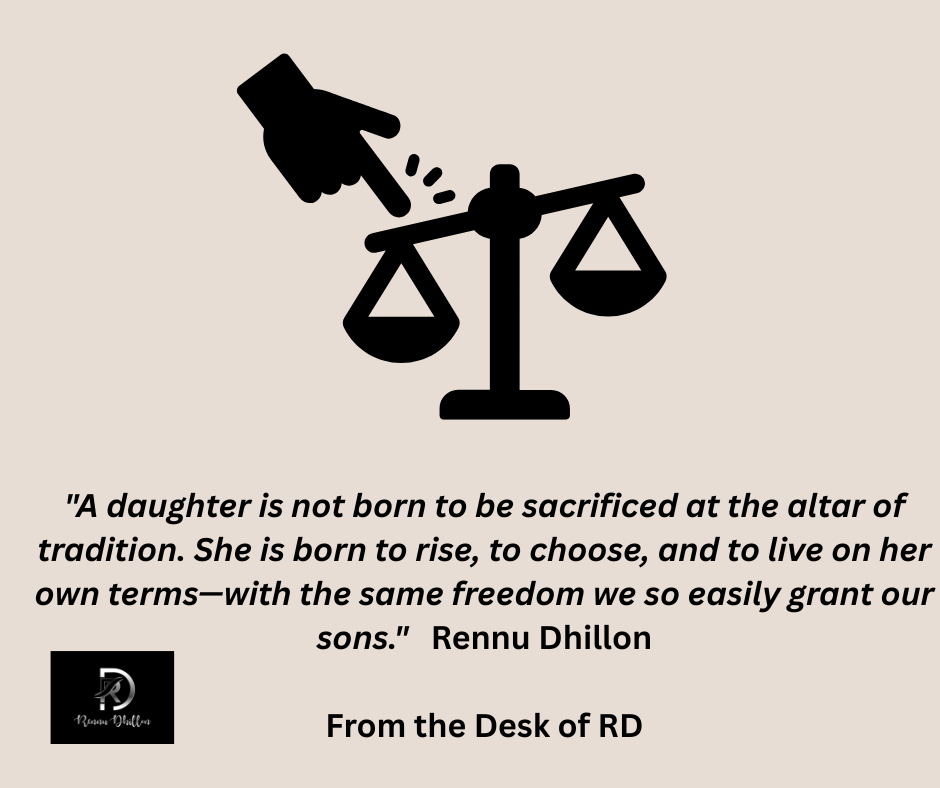I seriously do not understand our deep-rooted Indian mentality. On one hand, we push our daughters to excel—educate them, raise them to be ambitious and successful. Yet, the moment they begin making choices for themselves, we clip their wings.
If a daughter chooses to marry someone she loves—it’s a problem.
If she marries outside her religion—it’s a problem.
If she wants a career—problem.
If she doesn’t want to marry—problem.
If she chooses to be child-free—problem.
If she chooses to have children before marriage—problem.
If she divorces—problem.
If she wants to remarry or date after divorce or widowhood—still a problem.
Yet sons? They can disrespect their parents, mistreat their spouses, have affairs, remarry as they please, and rarely face the same judgment or consequences. The hypocrisy is glaring, and it’s heartbreaking.
Disowning a daughter because she didn’t follow your expectations is like throwing out an old couch—you act as though her worth depends on your approval. Is this what we’ve reduced love and family to?
The tragic death of Radhika Yadav, murdered by her own father who couldn’t handle her success, and Humaira Asghar, whose body was denied final rites by her own family, are just recent reminders of a culture that still shames and punishes women for daring to live freely.
We build temples on every corner, fast on every sacred day, and claim to be devout—but where is our compassion? Where is our humanity? What kind of religion is this!
And yes, the blame also lies with us women—for tolerating, justifying, and perpetuating this culture in the name of tradition and sacrifice. We’ve sacrificed our voices, our choices, and our peace for families and systems that often neither respect nor deserve it.
Maybe it’s time we stop being selfless for once.
Maybe it’s time we live life on our own terms—just like sons do.
Not for revenge, but for justice, dignity, and equality.
“A daughter is not born to be sacrificed at the altar of tradition. She is born to rise, to choose, and to live on her own terms—with the same freedom we so easily grant our sons.” Rennu Dhillon
